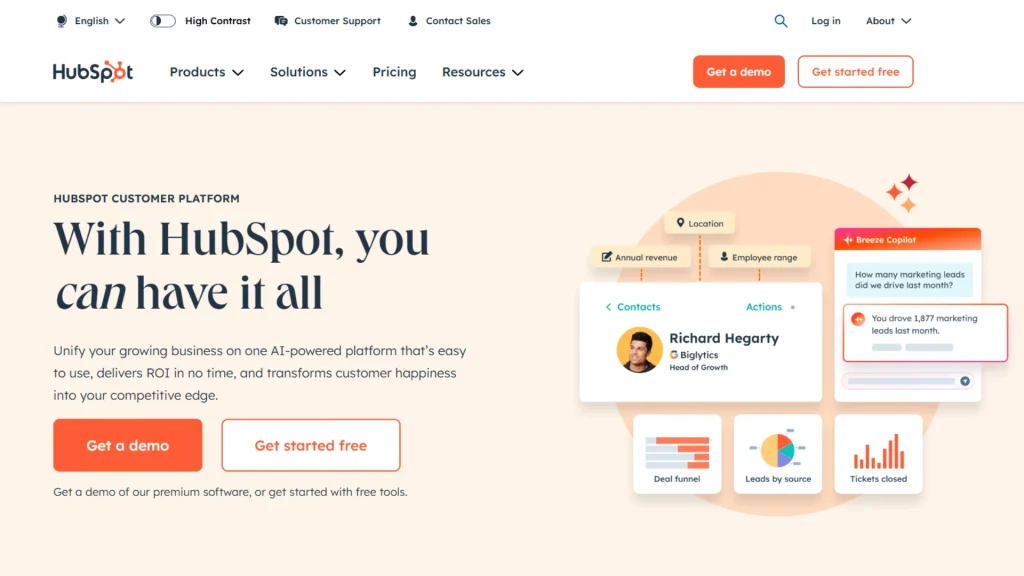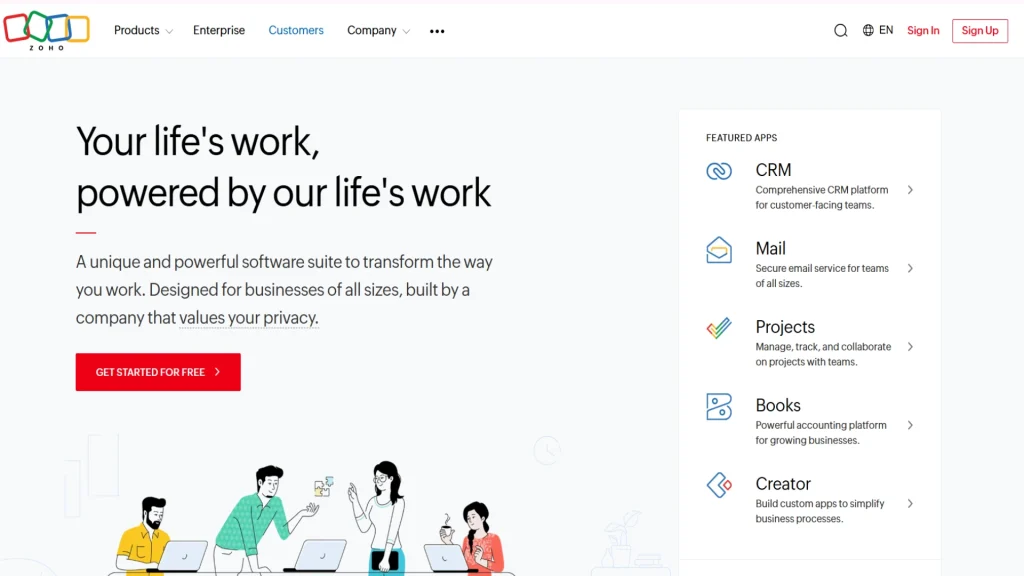Introduction
Real estate agents often spend countless hours buried in manual data entry, tracking leads across platforms, managing listings, and juggling endless client communications. These repetitive and fragmented tasks not only drain productivity but also increase operational costs—especially when agents rely on scattered spreadsheets or enter the same data multiple times. This manual approach creates high chances for errors, missed follow-ups, and ultimately, lost contracts and dissatisfied clients.
Real estate CRM solutions eliminate these inefficiencies by automating key business processes such as data entry, lead tracking, and reporting. With powerful automated workflows and centralized dashboards, these tools help agents streamline their daily operations and minimize human error. By bringing together all client-related activities—emails, documents, appointments, and transaction histories—into one organized system, real estate CRM platforms significantly improve data accuracy, communication speed, and client satisfaction.
Moreover, the best CRM for real estate agents provides smart client management features that make it easier to nurture leads, prioritize tasks, and close deals faster. With everything in one place, agents can focus more on building relationships and less on administrative work, which translates into higher conversions and long-term business growth.
There Are Drawbacks to Manual Data Entry
1.Time-Consuming Tasks
Not only is entering data manually slow, but also it is inefficient. Every lead should be carefully entered on its own; every updating of a client should be entered painstakingly, as well as every new property listing. As the adding up of work goes up, the agents have to spend time doing stuff more administrative than they sell properties.
2. Increased Risk of Errors
Even the most gifted and experienced in this field can commit errors because of the manual input of data. A simple typographical error in a phone number or a missing decimal point in a financial record could have disastrous results.
3. Data Duplication
This type of inconsistent manual entry will, as a final result, duplicate entries. Agents may call the same customer multiple times, forgetting or missing a vital update.
4. Lost Opportunities
Business goes elsewhere since an agent simply misplaced or forgets about a lead. It would not be surprising if the agent using manual entry did not track leads efficiently and thus missed out on the business.
5. Compliance Risks
All real estate transactions require rigorous documentation checks, and a manual error may prove fatal in terms of leading to incomplete records, which would potentially incur legal issues and client disputes.
How CRM Evades Data Entry Mistakes
1.Automated Data Capture
Client data is automatically captured by CRM applications from web forms, emails, and phone calls. This completely eliminates manual data entry and guarantees data accuracy every time.
So for instance, upon information submitted to the website by a prospective buyer, the CRM will record his particulars, assign him a task for follow-up, and perhaps generate a friendly email.
2. Smart Data Validation
CRMs embedded with smart algorithms are also used in validating the duplicate entries, missing information, and format mismatches. This way, every single entry for that of a client will hold some meaning.
3. Centralized Database
The benefits of a real estate CRM situation is based on the fact that all information on every client in question gets maintained and updated within a single access platform. Agents can just look at this platform, check histories on clients, track conversation records, and manage transactions without the hassle of switching between spreadsheets or paper records.
4. Automated Follow-Up
CRM software will remind agents automatically to never miss any critical opportunity instead of tracking them manually. These reminders may be for calls, emails, or meetings, all of which serve to keep the client engaged.
5. Integration with Document Management
Most real estate CRMs also integrate with document management to securely store and retrieve contracts, disclosures, and client forms.
The Benefits of a Real Estate CRM Solution

1. Increased Efficiency
CRM tools automate functions that include repetition and tedious tasks like scheduling, emailing, and distributing leads. Thus agents can concentrate on the more important parts of the business dealing with clients and closing deals.
2. Improved Client Relationships
By putting all communication histories into one database, agents will be able to personalize their conversations and show that they really understand the client’s needs. In turn, this will cement trust and loyalty.
3. Advanced Collaboration
With CRM systems, the team can share client information, property updates, and tasks and assignments in real-time. This prevents miscommunication and allows seamless teamwork.
4. More Accurate Reporting and Analytics
This real estate CRM will furnish agents with reports that track sales performance, lead conversion rates, and customer trends, thus providing insights for data-driven decision-making and strategic planning.
5. Compliance and Data Security
Data security systems of the CRM ensure sensitive data encryption, thus ensuring compliance with various industry regulations. This reduces the risk involving data breaches or document mismanagement.
Choosing The Best Real Estate CRM Solution
1.HubSpot CRM:

HubSpot is an intuitive platform, with automated workflows, email tracking, and lead scoring. This is the best CRM for real estate agents looking to have their reporting tools integrated.
2.Pipedrive:
Pipedrive is specifically designed for agents who are heavily into sales; it simplifies lead management with pipelines that can be customized and visual dashboards.
3.Zoho CRM :

It is one of the most versatile and flexible solutions because it has AI-driven insights to custom-tailor features for an individual agent’s needs and even to large teams
4.Follow Up Boss:
It’s built for real estate specifically and coupled with software that automatically generates leads, it helps with customer engagement. 5. Wise Agent This is a CRM that focuses on real estate agents through features such as transaction management, lead automation, and focused drip campaigns.
Conclusion
Manual data entry has long been a silent growth killer in real estate. It’s not only tedious and time-consuming—it also invites costly errors that slow down productivity and hinder deal closures. Fortunately, real estate CRM solutions offer a game-changing alternative. With intelligent automation features, agents can now handle everything from lead management and client onboarding to secure document storage—without ever touching a spreadsheet.
By streamlining data automation, CRM systems eliminate repetitive tasks and ensure that client information is always accurate and up to date. This frees up valuable time, allowing realtors to focus on building stronger client relationships, nurturing high-potential leads, and ultimately, closing more deals.
Moreover, embracing CRM for realtors is no longer just a modern convenience—it’s a strategic necessity. In today’s hyper-competitive property market, agents who fail to adopt the right productivity tools risk falling behind. Real estate CRM software empowers professionals to work smarter, not harder, while driving sustained growth in property sales.
Manual data entry has long been a silent growth killer in real estate. It’s not only tedious and time-consuming—it also invites costly errors that slow down productivity and hinder deal closures. Fortunately, real estate CRM solutions offer a game-changing alternative. With intelligent automation features, agents can now handle everything from lead management and client onboarding to secure document storage—without ever touching a spreadsheet.
By streamlining data automation, CRM systems eliminate repetitive tasks and ensure that client information is always accurate and up to date. This frees up valuable time, allowing realtors to focus on building stronger client relationships, nurturing high-potential leads, and ultimately, closing more deals.
Moreover, embracing CRM for realtors is no longer just a modern convenience—it’s a strategic necessity. In today’s hyper-competitive property market, agents who fail to adopt the right productivity tools risk falling behind. Real estate CRM software empowers professionals to work smarter, not harder, while driving sustained growth in property sales.
FAQ
Yes, most CRMs can work with external databases, including MLS (Multiple Listing Service), accounting software, and marketing tools. This will help to improve data flow and keep manual data entry to a minimum.
By capturing lead inquiries from websites, emails, and social media, no inquiry is lost in the system, and they need not be followed up by human effort. Automated follow-ups and reminders help agents on the forum nurture the leads effectively.
Zoho CRM and Wise Agent have been famous among small teams because of their high affordability and scalability. Both have features for almost all small teams but can be used by even large companies.
Yes, most CRMs provide dedicated property features associated with property tracking, which enables agents to manage listings, clients’ preferences, and transaction stages all in one place

